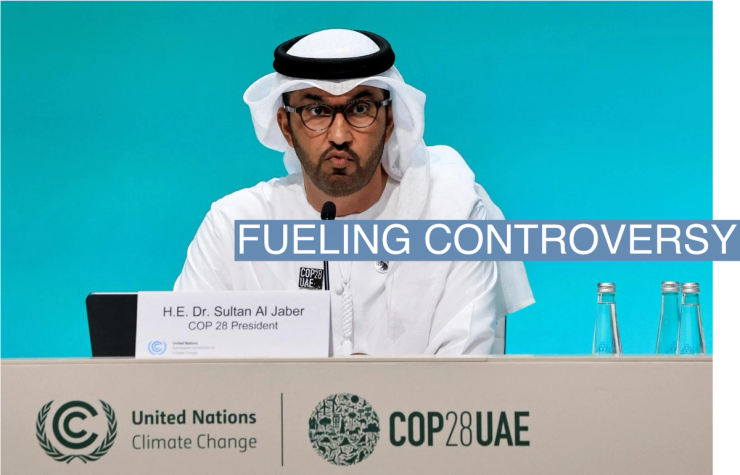The News
COP28 President Sultan al-Jaber on Monday said his comments claiming there was “no science” behind demands to phase-out fossil fuels to limit global heating were misinterpreted.
Al-Jaber’s comments, made during an event last month, were reported by The Guardian on Sunday, sparking condemnation from climate scientists and threatening to overshadow what was otherwise a successful weekend at the ongoing climate conference.
“There is no science out there, or no scenario out there, that says that the phase-out of fossil fuel is what’s going to achieve 1.5C,” al-Jaber said during a live online event on Nov. 21.
But on Monday the COP leader, who also heads the state-run Abu Dhabi National Oil Co. (ADNOC), said there has been a “misinterpretation” of his comments, saying he very much respected the science. “The phase-down and the phase-out of fossil fuels … is essential. It needs to be orderly, fair, just and responsible.”
SIGNALS
Al-Jaber’s presidency of the climate summit has been controversial from the start, with his parallel role as ADNOC president immediately raising concerns among critics. Last month, the BBC reported that the United Arab Emirates planned to use the COP28 conference to make oil deals, a claim al-Jaber has denied. At ADNOC, al-Jaber is currently heading the company’s expansion of oil and gas output, The Intercept reported in October, and at least a dozen of the company’s staff have been appointed to positions within the COP28 hosting team.
Aside from the controversy, the summit made progress over the weekend with 50 oil and gas firms promising to repair leaky methane systems no later than 2030. Among the companies which agreed to the framework were fossil-fuel giants ExxonMobil and Aramco. Methane emissions are responsible for about 25% of global warming, and mitigating leaks along oil and gas lines could go a long way to reducing overall fossil-fuel emissions. Around 10% of leaks create 50% of all methane emissions, one analyst told NBC News.
Governments from 118 nations pledged over the weekend to triple the world’s renewable-energy capacity by 2030. If countries stick to their promise, it will mean a phase away from fossil fuels. A smaller group of countries also promised to ramp up their nuclear energy programs.



